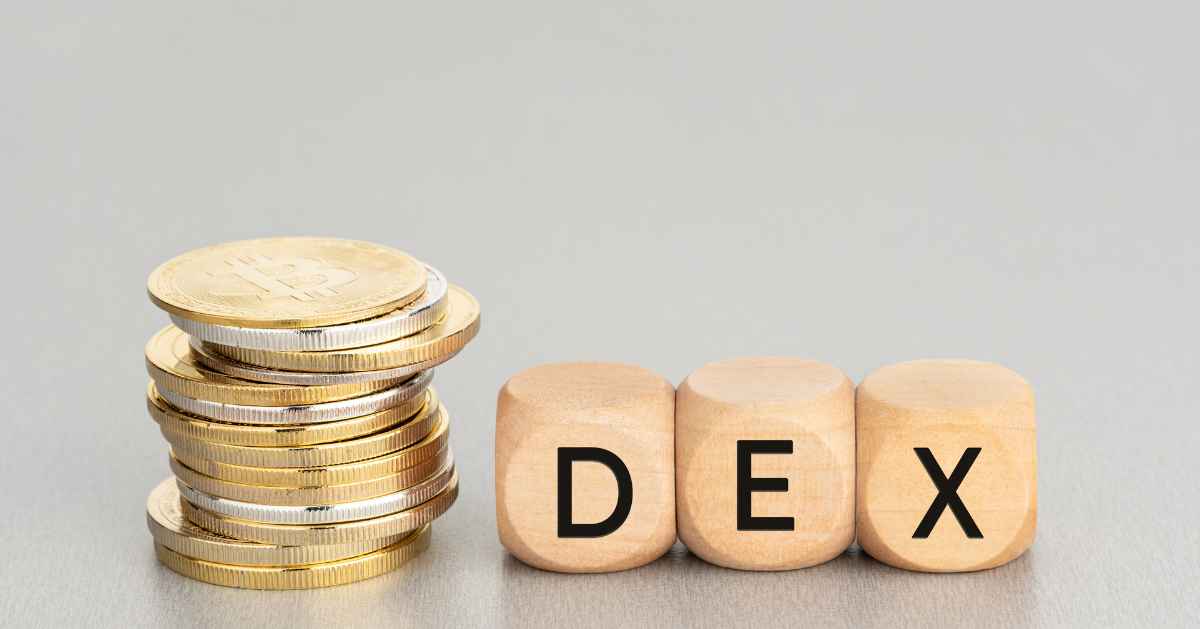Uniswap, SushiSwap, and More: Decentralized Exchanges (DEXs)

Amidst the rapidly evolving landscape of cryptocurrency and blockchain technology, the concept of decentralized exchanges (DEXs) has emerged as a revolutionary solution enabling the seamless trading of digital assets while bypassing traditional intermediaries and centralized control. Within this domain, Uniswap and SushiSwap stand out as prominent protagonists, each presenting a distinct approach to facilitating peer-to-peer transactions. This comprehensive article takes an intricate dive into the realm of DEXs, centering on the operations of Uniswap and SushiSwap. Introducing the Ethereum Code, a new investing platform for anyone looking to capitalize on Ethereum’s growth and popularity.
Understanding Decentralized Exchanges (DEXs)
What are DEXs?
Decentralized exchanges, commonly referred to as DEXs, are online platforms that enable users to trade cryptocurrencies directly with one another. Unlike traditional centralized exchanges that rely on intermediaries to facilitate transactions, DEXs operate on blockchain technology, utilizing smart contracts to execute trades automatically. This eliminates the need for a central authority to hold users’ funds, enhancing security and control.
The Advantages of DEXs
Security: DEXs significantly reduce the risk of hacking and theft associated with centralized exchanges since users retain control of their private keys and funds are not stored on the exchange itself.
Privacy: DEXs enable users to maintain their privacy by eliminating the need for KYC (Know Your Customer) verification, which is often required on centralized exchanges.
Control: With DEXs, users have complete control over their funds, as they trade directly from their wallets without the need to deposit assets onto the exchange.
Global Accessibility: DEXs are accessible to users from all around the world, promoting inclusivity and broader participation in the cryptocurrency market.
Uniswap: Revolutionizing DEXs
The Uniswap Protocol
Uniswap, a pioneer in the DEX space, introduced the concept of automated market makers (AMMs). The Uniswap protocol operates on Ethereum and allows users to trade ERC-20 tokens seamlessly. It relies on liquidity pools, where users contribute their assets to facilitate trading pairs.
Key Features of Uniswap
Permissionless Listing: Any user can create a trading pair for any ERC-20 token, promoting a wide range of asset options.
Liquidity Provision: Users can provide liquidity to Uniswap pools and earn a share of trading fees in return.
Decentralization: Uniswap’s open-source nature and lack of centralized control align with the core principles of blockchain technology.
SushiSwap: Building Upon Uniswap
● The SushiSwap Story
SushiSwap emerged as a fork of Uniswap, aiming to enhance and expand upon its predecessor’s features. SushiSwap introduced the concept of yield farming and introduced the governance token, SUSHI.
● Unique Aspects of SushiSwap
Yield Farming: Users can stake their assets in liquidity pools to earn rewards in the form of SUSHI tokens, promoting active participation.
Community Governance: SUSHI holders can participate in decision-making processes regarding the platform’s future developments.
The DEX Landscape: Beyond Uniswap and SushiSwap
While Uniswap and SushiSwap dominate the DEX narrative, several other platforms contribute to the decentralized trading ecosystem. Some of these platforms include:
● PancakeSwap
PancakeSwap operates on the Binance Smart Chain and offers lower transaction fees compared to Ethereum-based platforms.
● Curve Finance
Curve Finance focuses on stablecoin trading, optimizing efficiency for assets pegged to a specific value.
● Balancer
Balancer enables users to create and manage their liquidity pools with multiple tokens, promoting flexibility in trading.
The Future of DEXs
With the progressive evolution of blockchain technology, the significance of decentralized exchanges (DEXs) within the financial ecosystem is on the brink of a substantial expansion. Their pronounced focus on enhancing security, safeguarding privacy, and augmenting user autonomy resonates profoundly with the shifting requirements of cryptocurrency aficionados. This trajectory is further bolstered by the ongoing refinement of regulatory frameworks and the concurrent development of user-friendly interfaces, collectively indicating that DEXs are poised to attain heightened levels of mainstream adoption. In effect, these developments have the potential to catalyze a transformative paradigm shift in the way individuals engage in the trading of digital assets.
Conclusion
In summary, the ascent of decentralized exchanges marks a profound and game-changing transition within the cryptocurrency trading arena. By spotlighting Uniswap, SushiSwap, and an array of analogous platforms, this movement ushers in inventive resolutions that directly question conventional centralized exchanges. The elevated levels of security, privacy, and autonomy inherent in DEXs not only redefine trading dynamics but also pave the way for an impending transformation in the financial realm at large.
